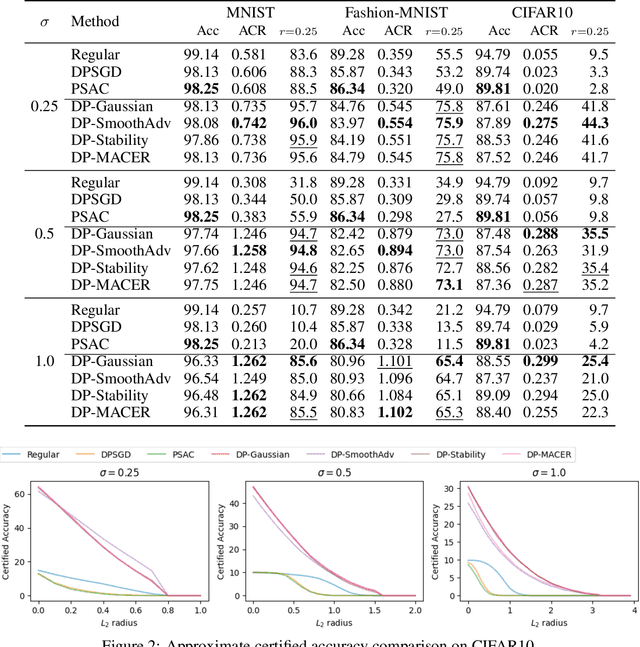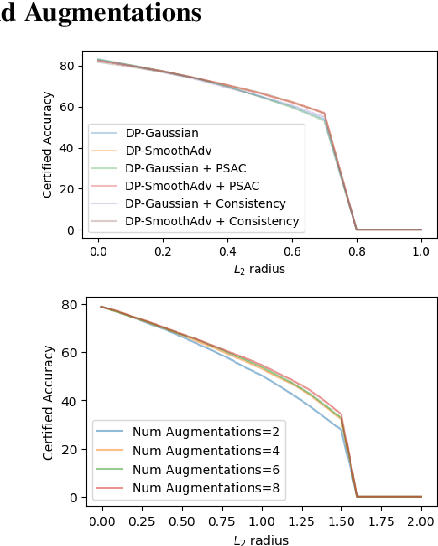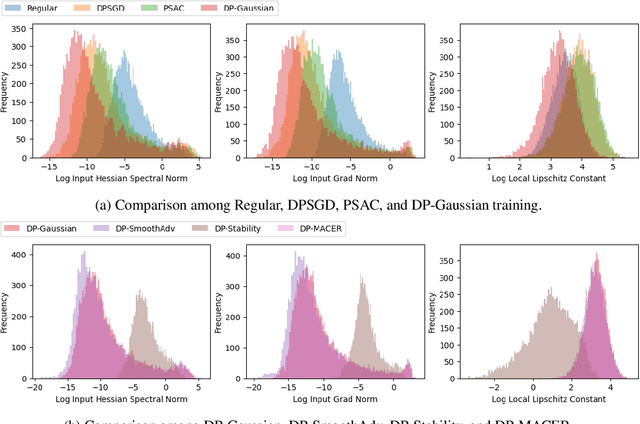Augment then Smooth: Reconciling Differential Privacy with Certified Robustness
Paper and Code
Jun 14, 2023



Machine learning models are susceptible to a variety of attacks that can erode trust in their deployment. These threats include attacks against the privacy of training data and adversarial examples that jeopardize model accuracy. Differential privacy and randomized smoothing are effective defenses that provide certifiable guarantees for each of these threats, however, it is not well understood how implementing either defense impacts the other. In this work, we argue that it is possible to achieve both privacy guarantees and certified robustness simultaneously. We provide a framework called DP-CERT for integrating certified robustness through randomized smoothing into differentially private model training. For instance, compared to differentially private stochastic gradient descent on CIFAR10, DP-CERT leads to a 12-fold increase in certified accuracy and a 10-fold increase in the average certified radius at the expense of a drop in accuracy of 1.2%. Through in-depth per-sample metric analysis, we show that the certified radius correlates with the local Lipschitz constant and smoothness of the loss surface. This provides a new way to diagnose when private models will fail to be robust.
 Add to Chrome
Add to Chrome Add to Firefox
Add to Firefox Add to Edge
Add to Edge